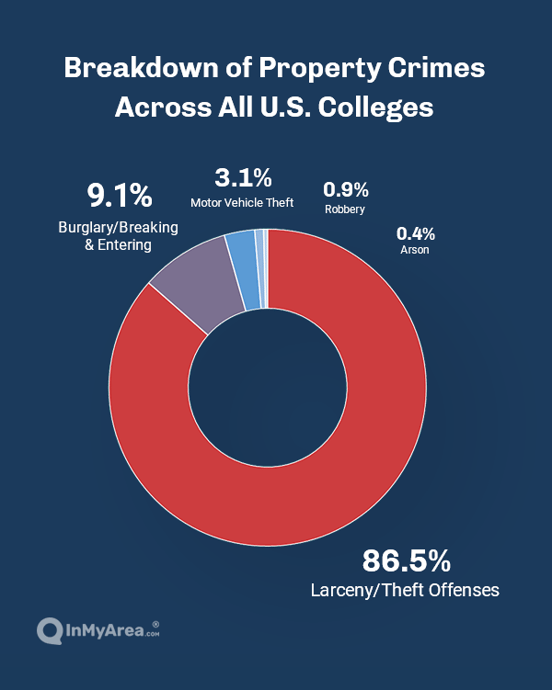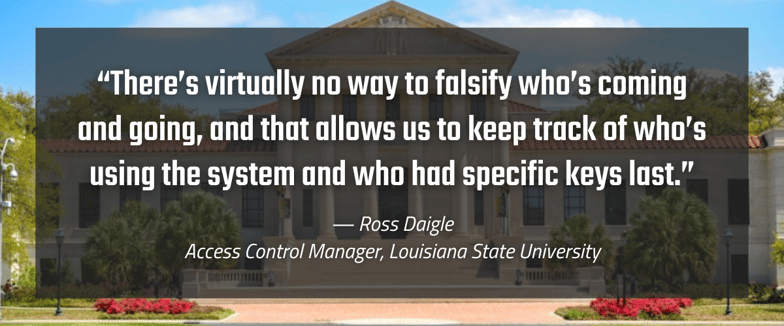It was the fall semester break at a Pennsylvania university when a safety alert went out to the community: An unknown male had broken into an unoccupied student room. This incident, unfortunately, can’t be written off as an anomaly.
As a campus law enforcement or safety administrator, you know just because students go on break doesn’t mean your job does. Property crime accounts for nearly 96% of the crimes that occur on campus. Empty residence halls provide the perfect opportunity for thieves — especially around the holidays, since criminologists have found that property crimes tend to happen in winter.
To keep university property and assets safe until — and after — students return, take advantage of seasonal breaks to improve security. Start with these steps:
Encourage Safety Precautions
Before your campus closes for a break, be sure to remind students to lock their doors and windows, and secure personal property.
To help students avoid being a victim of auto theft or vandalism, encourage them not to leave their vehicles parked on campus when they’re traveling home. Universities across the nation — including schools in Michigan, Oklahoma, Pennsylvania, and Virginia — have reported a spike in vehicle thefts.
Perform Key Audits
School breaks are a good opportunity to audit campus keys and other security equipment you might oversee. Make sure you know which keys have been issued to which employees and ensure no keys — especially master keys — are unaccounted for.
If your key audit process for keys takes days rather than minutes, consider using an electronic key control system for managing and tracking key activity. The quicker audits can be performed, the more time staff will have for other tasks.
Prioritize Training
When your campus is a bustling hive of activity, it’s probably difficult to squeeze important training into your daily activities. From threat response drills to learning how to use a new tool or process, quiet times on your campus can be used to prioritize training. Taking some time to catch up on training will prepare your officers and staff to be more effective and efficient when school is back in session.
Review Processes
It might be difficult to do when operations aren’t moving at full speed, but the slower pace of a break also represents a chance to review your department’s processes as a whole. Do certain tasks — like updating key logs — make your department less efficient? Is the process of checking out fleet vehicles too cumbersome? Does it take you days to figure out a master key has gone missing? Look for areas that make life more difficult for officers and consider options that can eliminate bottlenecks and obstacles.
You might even find that you can address these challenges with a single solution. For example, you can replace manual key logs with an electronic key management system that automatically records who removed a key, when, and why. Rather than checking out fleet vehicles manually, use the key control system. Set up alerts so if someone doesn’t return a master key on time, you can be notified immediately.
While thieves can take advantage of an empty campus, so can you. Use these breaks as an opportunity to make your campus a safer place.

![Desks and chairs in a lecture hall [1183046081]-1 Desks and chairs in a lecture hall [1183046081]-1](https://blog.keytrak.com/hs-fs/hubfs/Desks%20and%20chairs%20in%20a%20lecture%20hall%20%5B1183046081%5D-1.jpg?width=3000&height=606&name=Desks%20and%20chairs%20in%20a%20lecture%20hall%20%5B1183046081%5D-1.jpg)


